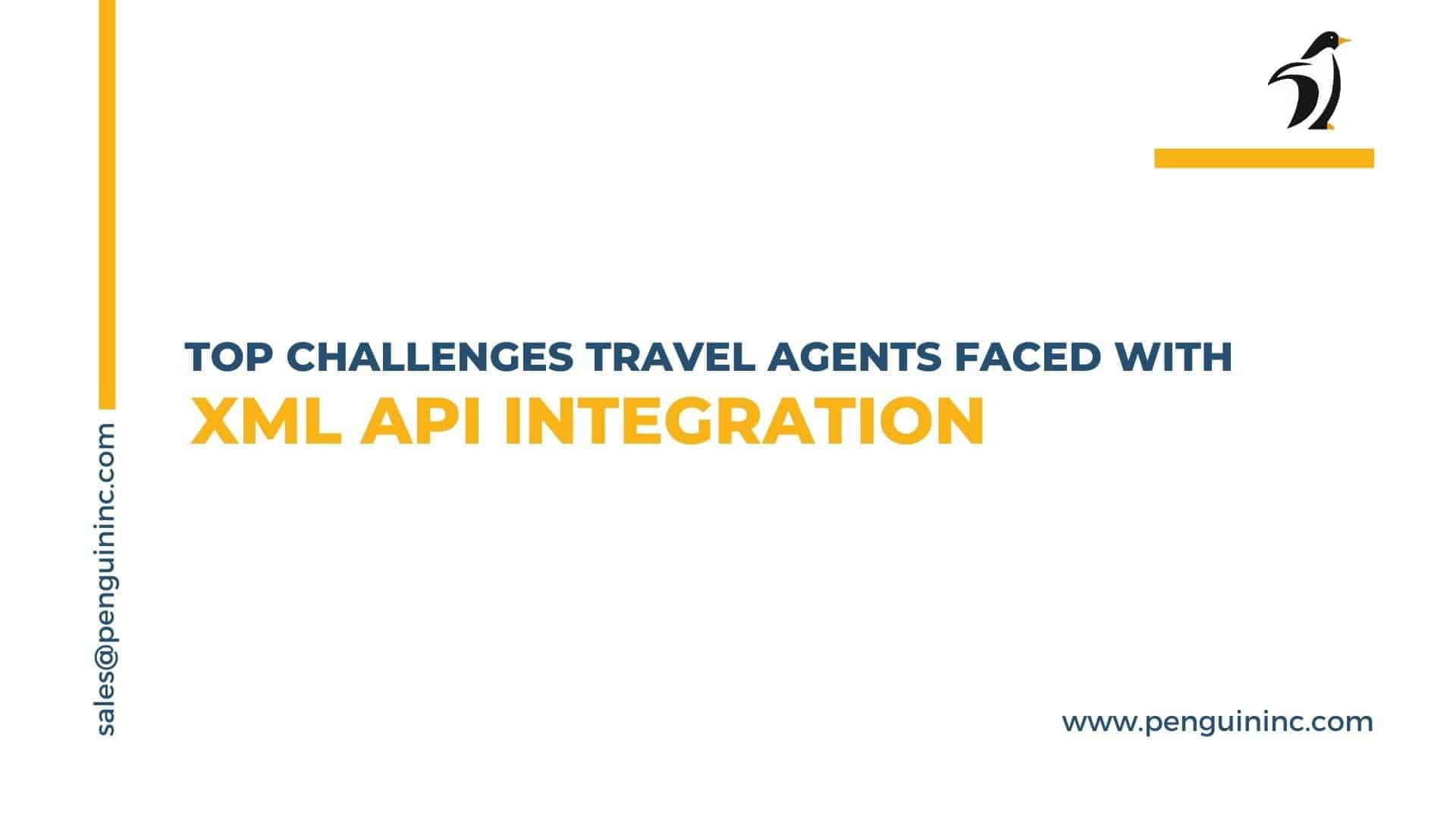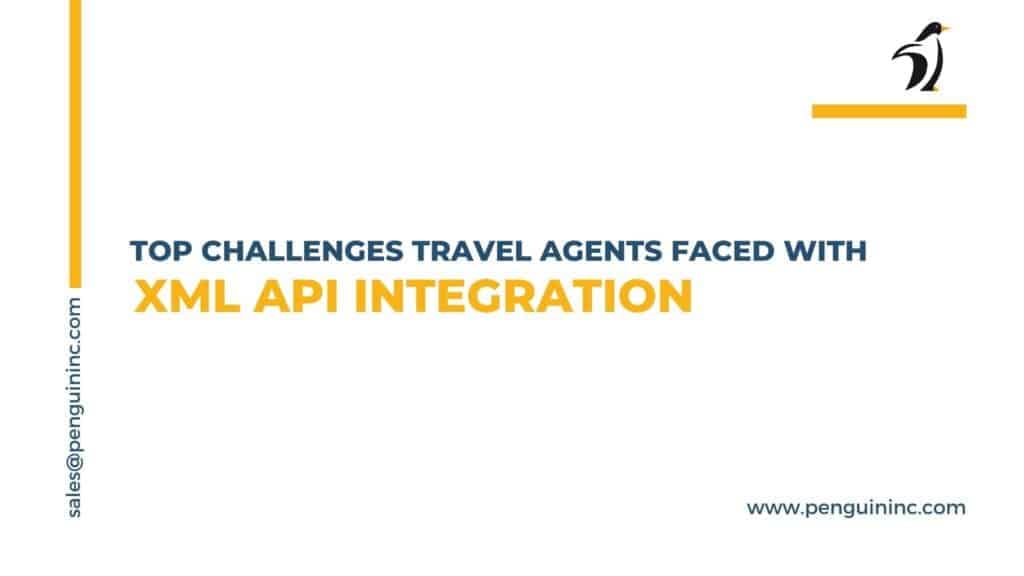
The travel industry is constantly evolving. One of the key drivers of this change is XML API integration. This powerful technology allows travel agents to access various services from airlines, hotels, and other providers. It streamlines operations and enhances the booking experience.
However, XML API integration also comes with challenges. Travel agents face several hurdles when implementing this technology. These obstacles can affect your agency’s performance and customer satisfaction.
In this article, we’ll explore the specific challenges related to XML API integration. We’ll also discuss how these issues can impact your agency.

In the travel sector, XML API integration allows agents to access a plethora of inventory from various suppliers—like airlines, hotels, and car rental companies—directly through their booking systems. This integration is crucial for providing real-time availability and pricing, ultimately enhancing customer service in travel agency software.
The challenges of XML API integration can be outweighed by its benefits. By implementing XML API integration, travel agents can streamline their booking processes using advanced travel booking software, reduce manual errors, and enhance their inventory offerings. However, the integration journey can be complex.
A common misconception is that XML API integration requires extensive technical knowledge and comes with high costs. While there is a learning curve, many API providers offer resources that simplify the process, making it accessible for most travel agents utilizing travel management software.
Despite its advantages, travel agents often face several technical challenges during XML API integration. Let’s break down some of these key hurdles.
One major challenge of XML API integration is the complexity of handling multiple APIs from different suppliers. Each API may have its unique data formats, authentication methods, and error handling mechanisms. This variety can make integration cumbersome and time-consuming, requiring agents to invest in training or technical support, especially when working with travel reservation software.
Many travel agencies operate on outdated legacy systems that may not support modern APIs effectively. This challenge of XML API integration often necessitates significant upgrades or custom development, which can strain budgets and timelines, particularly when trying to adapt tour operator software.
Another technical challenge arises from ensuring compatibility across various platforms. Travel agents must ensure that their APIs work seamlessly on different operating systems, such as Windows, macOS, and mobile devices. This requires thorough testing and configuration, which can be resource-intensive.
Data synchronization is critical in travel, and the challenge of XML API integration here cannot be overlooked. Accurate and real-time data is essential for providing reliable booking options through travel management software.
Achieving real-time data synchronization is often cited as a major challenge of XML API integration. Delays can lead to outdated information on availability and pricing, resulting in booking errors that frustrate customers and harm your agency’s reputation.
Even with real-time synchronization, discrepancies can still occur. When the information provided by the API doesn’t match actual availability or pricing, it can create significant headaches. Travel agents need effective mechanisms to handle these discrepancies and minimize the risk of errors during the booking process with their travel booking software.
Slow API response times can exacerbate the challenges of XML API integration. If the API takes too long to respond, it can delay bookings and lead to customer dissatisfaction. Ensuring that your APIs are optimized for speed is crucial for maintaining an efficient booking experience.
Security is a paramount concern when it comes to XML API integration. Protecting sensitive customer data is non-negotiable, and failing to address security challenges can have serious consequences.
One of the critical challenges of XML API integration is securing sensitive customer data during transmission. Employing encryption methods and secure protocols like HTTPS is essential to protect data from unauthorized access.
Another significant challenge of XML API integration is preventing unauthorized access. Implementing robust API key management and monitoring can help safeguard against potential breaches, ensuring that only authorized users have access to the system used in travel reservation software.
Compliance with industry regulations, such as GDPR and PCI DSS, adds another layer of complexity to the challenges of XML API integration. Ensuring that your systems meet these regulations is crucial for maintaining customer trust and avoiding legal issues in the travel sector.
Even after successful integration, travel agents may encounter troubleshooting and support challenges associated with XML APIs.
Many API providers do not offer comprehensive or up-to-date documentation, making it difficult for agents to troubleshoot effectively. This lack of clarity can add to the challenges of XML API integration, leading to confusion and delays.
Travel agents often rely on external providers for fixes and updates, which can lead to delays in resolving issues. This dependency can be frustrating and create a bottleneck in operations, highlighting another challenge of XML API integration.
API downtime can have severe repercussions for travel agencies. When your booking system goes offline, it can lead to significant revenue losses and customer dissatisfaction. Addressing this challenge of XML API integration requires having robust support and disaster recovery plans in place.
As your travel business grows, your API integrations need to evolve as well. Addressing scalability challenges is key to long-term success.
As your agency experiences growth, the challenges of XML API integration become more pronounced. Increased traffic and data volume can strain your existing systems, making it essential to plan for scalability from the start.
Keeping up with technological advancements is another important aspect of overcoming the challenges of XML API integration. Building modular systems allows for easier updates and enhancements as new features emerge in travel technology.
To stay competitive, travel agencies must continuously improve their API integrations. Regularly monitoring performance and implementing updates will help mitigate the challenges of XML API integration and keep your business ahead of the curve.
While XML API integration offers travel agents significant advantages, it also presents various challenges that must be addressed. From technical hurdles to security concerns and scalability issues, understanding these challenges is crucial for leveraging the benefits of API integration effectively. By tackling these obstacles head-on, travel agents can enhance their operations, improve customer satisfaction, and remain competitive in a rapidly changing industry. Whether through travel agency software, travel management software, or tour operator software, a proactive approach to overcoming these challenges will lead to long-term success.
For Niche Travel markets Travel XML API integration has revolutionized the way travel companies expand…
In today’s fast-paced business world, managing corporate travel efficiently is crucial. Companies need to optimize…
What Exactly is Travel API Integration?Imagine you’re running a travel platform where users can book…
What Exactly is Multi-Channel Distribution in Travel?Let’s break it down! Multi-channel distribution means offering your…
Ever wonder how travel agencies manage to show you real-time flight availability, hotel options, and…